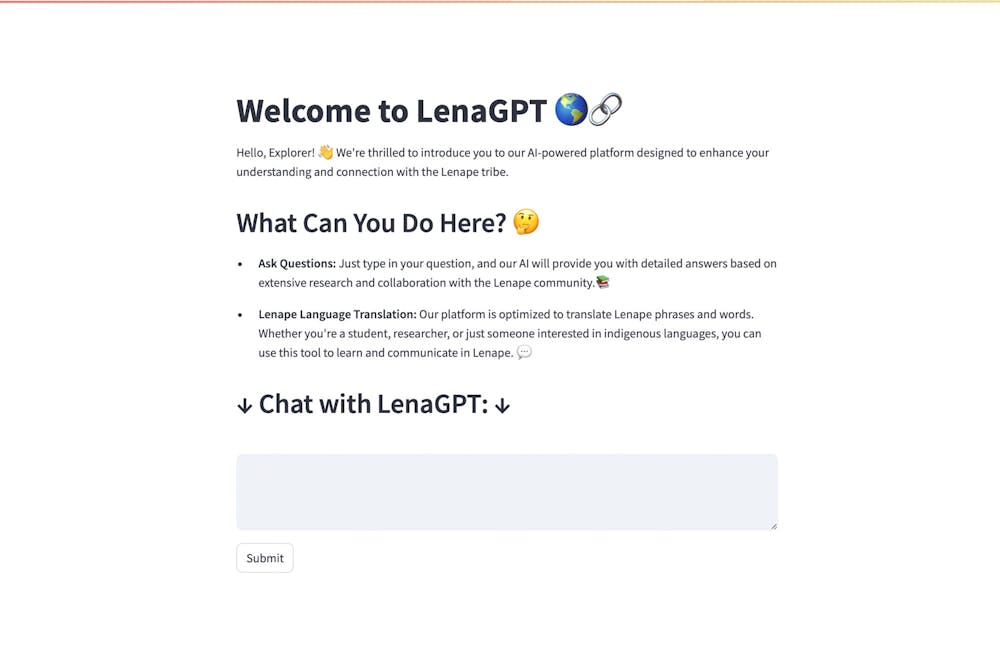A Penn student has co-created LenaGPT, an AI-powered platform designed to translate indigenous Lenape languages.
Engineering first-year Ashmit Dewan, along with West-Windsor Plainsboro High School North junior Shiva Tripurana, created the translator. Most existing translation websites, such as Google Translate, do not offer English to Lenape translations. Tripurana and Dewan sought to address this gap by developing a translation model for the languages.
“I started to realize that you could use computational linguistics to preserve language, information, and culture of the Lenape. And that's kind of when we streamlined into LenaGPT,” Tripurana said.
LenaGPT allows users to pose questions and receive comprehensive answers, drawing on expertise and collaboration with the Lenape community. The platform facilitates learning and communication by providing translations of Lenape phrases and words.
“It’s really important that people understand that a language is a tremendous part of culture,” Tripurana added.
Tripurana and Dewan began developing the program approximately six months ago, meeting at least twice weekly to brainstorm and create a model akin to ChatGPT that offers both translation services and historical information.
Unlike most translation models that rely on coded algorithms scanning a set of words, LenaGPT employs a large, sophisticated language model, necessitating extensive information coding.
Tripurana is also the founder of LenaLingua, a non-profit created in 2020 that promotes the preservation and understanding of Lenape language and culture through computational linguistics.
Students in new Wharton ABCS course help Philadelphia community file tax refunds
Middle Eastern Studies Association calls on Penn admin. to protect faculty, academic freedom
According to Tripurana, LenaLingua can be “a catalyst for people who don't know anything about Indigenous cultures to kind of start learning about indigenous cultures.”
The site contains up-to-date information and intensive research on the Lenape tribe provided by Tripurana’s team through communication with linguistics professors and other sources.
Upon coming to Penn, Dewan became passionate about spreading awareness about the Lenape tribe in and outside of the Penn community. He began working with Tripurana to develop LenaGPT and further the mission of LenaLingua.
“If I did this, without [Dewan], I don't even know if I would have gotten to LenaGPT. Because this was through both of us ideating and trying to figure out the best way to preserve the language and culture,” Tripurana added.
According to the creators, LenaGPT has played a large role in growing the enrollment in LenaLingua’s new programs. The organization offers three online programs designed to teach users the Lenape language.
The site also has a blog featuring several articles on Lenape culture and history. According to Tripurana and Dewan, these resources can teach individuals about a culture that is often misrepresented.
Tripurana and Dewan aim to expand their efforts in preserving the Lenape language to other Indigenous languages.
With Penn built on Indigenous land, they hope the community will recognize and protect the language so future generations may continue to pass on the history and culture of the Delaware people.









